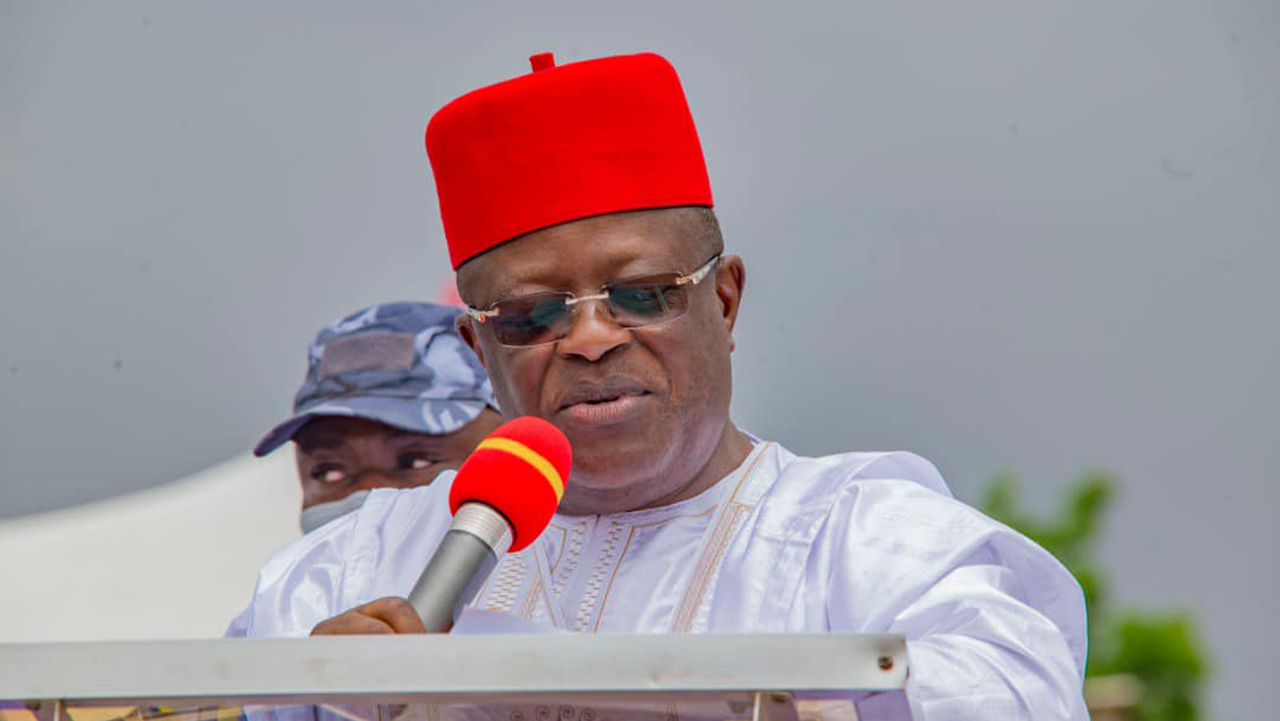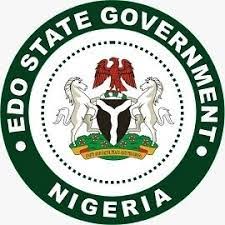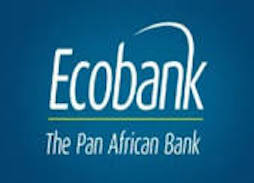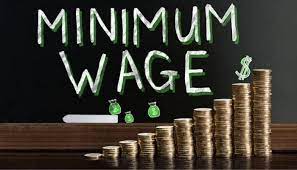COVER
Zenith Bank GMD, Onyeagwu Emerges CEO of the Year

By Tony Obiechina, Abuja
Zenith Bank’s Group Managing Director/CEO, Mr. Ebenezer Onyeagwu, has emerged CEO of the Year for a second consecutive year at the Sustainability, Enterprise and Responsibility (SERAS) CSR Africa Awards held at the weekend in Lagos.
According to the judges, he was selected for a number of reasons, including engendering a culture that promotes the continued investment in social initiatives in support of the United Nations Sustainable Development Goals (SDGs).
Under his leadership, the Zenith Bank’s social investments totalledNGN3.285 billion in 2020, representing nearly 2% of the Bank’s profit after tax.The judges found him worthy for his commitment to promoting sustainability and responsible business practices in Nigeria, by his frontal leadership of sustainability in Zenith Bank, thereby enabling best industry practices in the banking sector, and for his passion for reducing carbon emissions in the Bank’s operations.
Zenith Bank Plc also emerged winner in four other categories at the SERAS CSR Africa Awards, carting home the awards for ‘Best Company in Reporting and Transparency”, “Best Company in Infrastructure Development”, “Best Company in Gender Equality and Women Empowerment”, and the coveted “Most Responsible Organisation in Africa”.
Zenith Bank was adjudged the Most Responsible Organisation in Africa, winning the overall best sustainability award, for its continued commitment to the tenets of Sustainability and Corporate Social Responsibility, within its immediate community and in the society at large.
The Bank also emerged as the winner in the category for Reporting and Transparency for its consistency in disclosing and communicating its sustainability journey and progress annually vis-a-vis environmental, social, and governance (ESG) goals, in line with the guidelines and ‘(NSBP), Nigerian Exchange (NGX), United Nations Global Compact (UNGC), and United Nations Environment Programme Finance Initiative (UNEP FI). The Bank also ensures the assurance of its sustainability report by reputable independent third parties. In 2021, the Bank’s 2020 sustainability report was assured by PricewaterhouseCoopers (PwC) and disseminated through the Bank’s website for the public and sent to all relevant stakeholders, including the United Nations Global Compact (UNGC).
In the infrastructure development category, the Bank was voted winner for its nation-building initiatives and investments, including supporting efforts towards establishing basic services and functional security, governance, and economic and infrastructure systems, especially in Nigeria. As a testament to this and in demonstration of its commitment to the development (often referred to as reform, restructuring and rebuilding) of the Nigeria Police Force for the preservation of law and order, protection of life and property, and law enforcement in Nigeria, the Bank supported the Lagos State Security Trust Fund with N500,000,000.00 for the provision of security-enhancing facilities and infrastructure. This is in addition to contributions to other state security trust funds.
Zenith Bank was adjudged winner in the category for the Best Company in Promotion of Gender Equality and Women Empowerment for its Z-Woman initiative, which offers credit facilities to women-owned businesses at a single-digit interest rate and for a gender-balanced workforce (Women make up about 50% of employees). During the reporting period, the number of women and women enterprises supported by the Bank, through the Z-Woman initiative, grew by 88.7%, from 391 in 2019 to 738 in 2020.
The Sustainability, Enterprise and Responsibility Awards (SERAS) is an initiative of TruCSR which celebrates and promotes investments by corporate organisations in the society through CSR and sustainability initiatives. It made its debut in 2007, and participation was opened to other countries of Africa in 2016.
The 2021 awards featured 387 projects by 97 organisations across Africa. The SERAS Jury Board consists of global thought and best-practices leaders from around the world such as Maria Sillanpaa (Finland); Nyasha Gwatidzo (Zimbabwe); Adesuwa Onyenokwe (Nigeria); Amjed Achour (Morocco); Charles Ojei (Nigeria); Ellen Gunning (Ireland); Gina Din-Kariuki (Kenya); Indira Kartallozi (England); Lampe Omoyele (Nigeria); Paul Kapelus (South Africa); and Scott Walker (England).
COVER
FG May Engage Private Sector to Close $10bn Power Supply Gap

By Tony Obiechina, Abuja
The Federal Government of Nigeria has disclosed plans to source from the private sector, part of the $10 billion required to provide regular electricity across Nigeria within the next five to 10 years.
This formed the crux of the deliberation when the Director General of the Infrastructure Concession Regulatory Commission (ICRC), Dr Jobson Oseodion Ewalefoh paid a courtesy visit to the Minister of Power Chief Adebayo A.
Adelabu yesterday in Abuja.The duo agreed that in view of the funding and technical requirement needed to advance the power sector in Nigeria, it had become imperative to seek private sector input through Public Private Partnership (PPP) in co-financing and providing expertise that will ensure optimal performance of power infrastructure.
The Director General of the PPP regulatory body said that in view of the importance of power to the economic development of Nigeria, optimizing performance of existing infrastructure as well as funding new ones was imperative.
He acknowledged the challenges in the sector was hydra-headed and went beyond funding alone, adding that with such inter-agency collaboration and partnership with the private sector, the limitations can be addressed.
Reacting to a comment by the Minister, the DG said that through its regulatory processes, the ICRC can midwife private sector investment of part of the $10bn in the power sector to provide regular electricity, attract more foreign direct investment to other sectors and ultimately grow the economy.
“Revamping the power sector requires planning, it involves investments and it takes time. So, we need to collaborate to solve the issues in this sector.
“The investment required in power is very huge and government cannot fund it alone, so we have to leverage on the financing capacity of the private sector. That is why the ICRC was set up to regulate this leverage.
“The Commission is poised to regulating the processes of attracting investment to the power sector”.
He commended the Minister for his vast knowledge of the sector, pointing out that Mr. President’s choice of him was commendable.
Dr Ewalefoh said that in a bid to accelerate PPP investment as directed by President Bola Ahmed Tinubu, the Commission had issued a 6-point policy direction which has ultimately streamlined the process of PPP service delivery.
The DG stressed that whereas the processes have been streamlined to accelerate project delivery and encourage investors to adopt PPP, the Commission was not relenting or compromising on its stringent regulatory function so as to forestall contingent liabilities or unnecessary delays by companies that lack the requisite capacity.
In view of the above the ICRC’s helmsman added that the Commission was now insisting on inserting conditions precedent to all PPP agreements such that any preferred bidder that defaults will have their agreement automatically nullified by reason of their default.
In his response the minister commended the DG for the initiative to visit the ministry with the proposal of advancing investment in power sector through PPPs.
He said, “For us to achieve 24 hours power supply across Nigeria in the next 5 to 10 years, there is a minimum funding requirement of about N10 billion in the next 10 years.
“The government cannot afford that, when there are other critical sectors in need of funding.
“Can government do it alone? No! which is why we have to look for or marshal private sector fund while still retaining government interest and ownership. That is where ICRC comes in.“We need to do this in collaboration with the private sector and the best way is through concession.”
COVER
Marketers Slice N50 from Petrol Price after Dangote Deal

By David Torough, Abuja
Independent Petroleum Marketers Association of Nigeria (IPMAN) has announced reduction in price of petrol by N50 per litre when purchasing directly from Dangote Refinery.
This is coming after Monday’s deal where Dangote Refinery agreed to sell petrol directly to IPMAN members, ending the Nigerian National Petroleum Company Limited (NNPCL)’s role as the exclusive buyer of Dangote’s petrol.
Currently, motorists pay between N1,060 and N1,200 per litre at NNPCL retail outlets and other filling stations.
IPMAN’s National President, Abubakar Maigandi, shared this news during a press interview yesterday.
According to him, Dangote Refinery had agreed to supply petrol to IPMAN members at a rate of N940 per litre for depots and N990 per litre for trucks.
With this arrangement, Maigandi said, IPMAN members who currently sell petrol between N1,150 and N1,200 per litre would adjust their prices down by N50, depending on location.
Maigandi said, “Presently, we have been given two different arrangements on how to buy fuel from the refinery.
“There’s one where we can load the vessels and carry them to our various depots at the rate of N940 per litre. Then, for the depots, it is at the rate of N990 per litre.”He stated that in Maiduguri (Borno State) for instance, “the current price is N1,200 per litre. With these changes, it may likely reduce to N1,150, which is a reduction of N50. So that’s N1,150; it may even be below that.”
COVER
Sokoto-Badagry Highway: 125km Segment through Niger ‘ll Speed Dev’t- Umahi

From Dan Amasingha, Minna
Federal Government has assured that the administration of President Bola Ahmed Tinubu will continue to positively impact the lives of Nigerians through the Renewed Hope Agenda.
The Minister of Works, David Umahi emphasized this at a town hall meeting in Minna yesterday where he discussed the development of road infrastructure in the region.
Umahi highlighted the importance of the meeting, which focused on the proposed construction of the 125km, three-lane, single-carriageway Niger State segment of the larger 1,068-kilometer Sokoto-Badagry Super Highway.
According to the minister, the Sokoto-Badagry Super Highway is a federal road that will pass through several states, including Sokoto, Kebbi, Niger, Kwara, Ogun, Oyo, and Lagos, with 125 kilometers of the highway to be constructed in Niger State.
The minister underscored the project’s potential to enhance infrastructure and stimulate economic activities along the route, bringing direct benefits to local residents and businesses.
Niger State, with its extensive network of federal roads, faces challenges due to poor road conditions.
“Many of these federal projects, some dating back to 2010, remain incomplete. For example, the Suleja-Minna Road is only 85% complete, and the Bida-Lapai-Lambata Road is at 64%, despite contracts being awarded over a decade ago.
“Quality infrastructure and timely project completion are priorities for both state and federal stakeholders,” Umahi said.
The Niger State Governor, Umar Muhammad Bago thanked the president and federal officials for prioritizing the state’s infrastructure needs.
The governor acknowledged the Senate Committees on Works and Finance, and the respective House committees for recognizing Niger State’s challenges.
Bago called for urgent intervention to improve road quality and suggested that contracts held by underperforming companies, such as Salini, be awarded instead to reliable firms like Hi-Tech and CCECC.He disclosed that Niger State has potential for cement production, citing the state’s rich limestone deposits and announced plans to attract investors to further support infrastructure and economic growth in the region.























